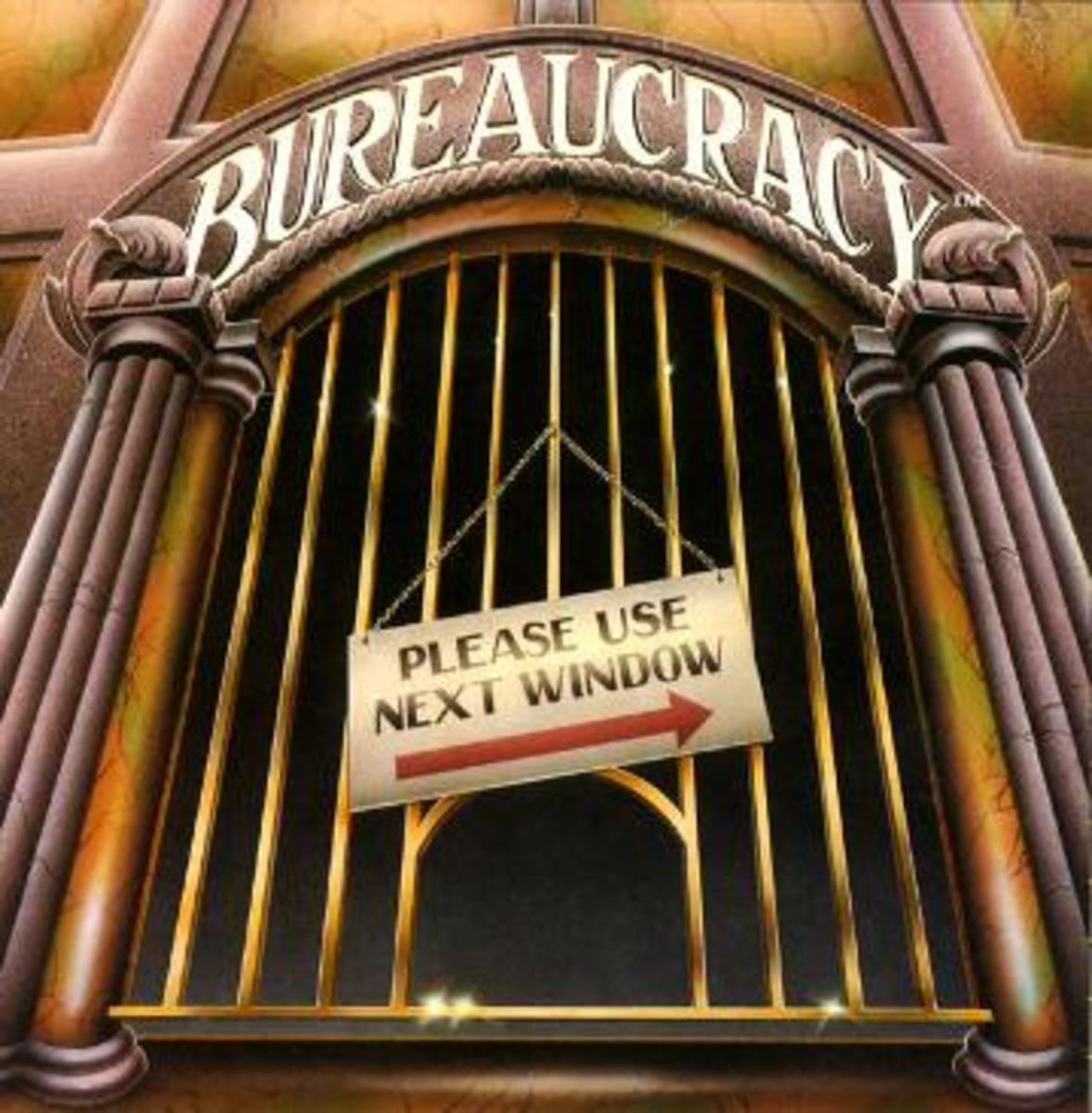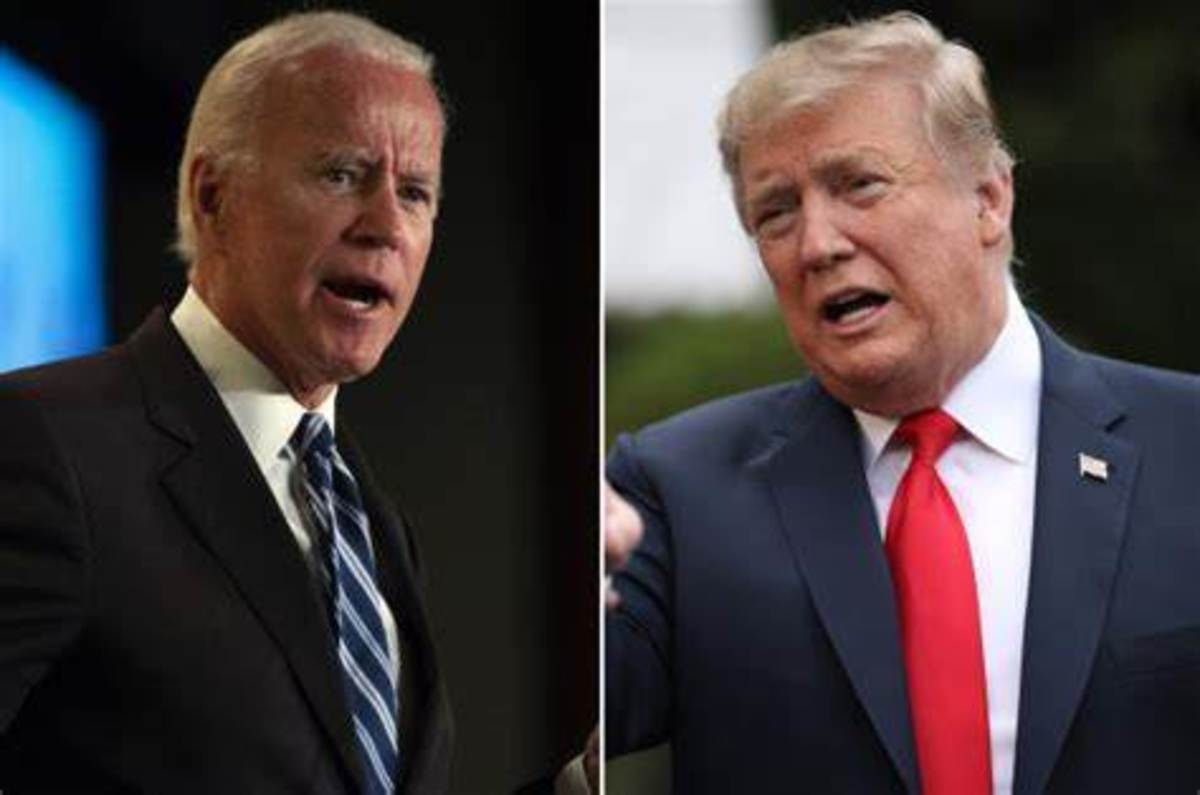Basic Point-By-Point Summary (and Fact Analysis) of First 2012 Presidential Debate
Our 2012 Major Party Candidates
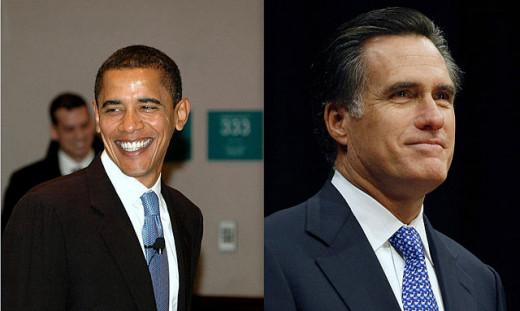
The 1st Presidential Debate of 2012: Obama v. Romney
The first presidential debate of the 2012 Romney v. Obama throwdown is finished and on the record! By now, the "5 things to take away"s and fact checkers have already been written and posted and whatever else - it's Oct 6th as I publish this - so I guess I'm a bit late to the party. Oh, well. :D
As the debate takes about a hour and a half to watch and the transcripts are tortuous to read, I've decided to put together this point-by-point summary for those who want to go in depth but prefer not to hear the fluff and the arguments over figures. And just so you know, I did this by taking notes while watching a recording of the debate, so please forgive me if I misquote an "essential" as a "important". Corrections are very welcome in the comments section!
The debate took place at the University of Denver and the moderator of was Jim Lehrer, the Executive Editor of PBS Newshour. It consisted of 6 segments, three of which focused on the economy and the others on healthcare, the role of the federal government, and how to govern/partisan gridlock. The segments were planned to be approximately 15 minutes long, though the candidates went over the time allotted by so much that the last segment was only 3 minutes long. Romney won the last word, by which I mean the last closing statement, by a coin toss beforehand.

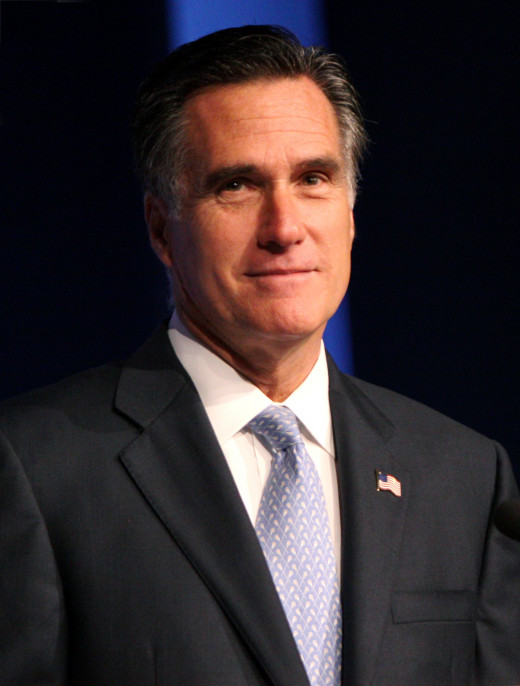
Note on my summary and fact-check links
This hub is intended to provide a concise but detailed summary of the October 3rd debate. I've left out most of the specific figures and statistics (there were a good number of often arcane studies mentioned on both sides), as well as the various heartwarming, relatable, and slightly misleading stories of meeting middle class families on the campaign trail.
The focus is more on the policies and plans being presented by both candidates, response by response, and my analysis will focus on which of those can stand the shockingly radical tests of truth and reason.
If you see a (!), this means that fact-checkers have found proof either for the statement (if it was challenged) or against it. [Update 10/11: I'd forgotten this site doesn't allow too many links to a single domain. I've posted non-live links next to the previously live links for anyone who wants to copy paste into their browser.]
Any [[ ]]'s indicate my own remarks. I'll do my best to keep them brief and few, but sometimes I just really, really want to say something.
I'd love to note all of the misleading statements for you as well, but then there would be so many (!)'s it would look like a field of rabbits. The links for the fact checks will go to one source (Most of the time Politifact.com, but also FactChecker.org), but they've all been checked on at least two other sources. I link to because they provide a brief explanation of why the claim is false, as well as sources where they got their information.
If you don't trust either, at least take the claim with a grain of salt, or even better, do more research into it elsewhere. I didn't include as many checks as I would like - it's been busy over here - and I'd appreciate any suggestions to add to the article, as well as additional links if anyone verifies facts in separate places.
Beyond this sentence, there will be no mention of body language, tie color, or how Obama kept looking down at his notes while Romney attacked, only looking up to make wanly delivered defenses and not utilize his many opportunities to attack the weak points in Romney's claims. From that I suppose you already have my opinion on the performance aspect, but this article will focus on the plans and policies.
I'll do my best to keep the summaries as factual and unbiased as possible, conveying the responses in just a more concise form of verbatim. Also, feedback and comments are greatly appreciated, but as I do not censor, please post conscientiously.
Alright then. With that cleared up, let's move straight into Segment 1!

Segment 1 - What are the differences in how you two would go about creating jobs?
Obama: Says the country was in a terrible financial crisis 4 years ago, but has since started to recover. Mentions his plan and his record so far - focus on education and training, energy independence, and simplifying the tax code.
Romney: Calls this a "tender topic" and criticizes "the path we've been on". Says his plan consists of 5 parts: energy independence, trade with Latin America and cracking down on China's unfair practices, education, balancing the budget, and championing small businesses. [[This plan is on his website, which reveals more of a focus on oil in "energy independence" than he mentions at any time during the debate. Just a heads up if that was unknown and significant to anyone.]]
Obama: Defends his record on improving education and mentions "Race to the Top". Says both he and Romney want to lower the corporate tax rate to 25%, especially for manufacturers. However, says he will close loopholes for companies that go overseas.
Mentions will use oil and natural gas, but also alternatives. Criticizes Romney's economic plan (says 8 billion dollar increase in budget, 5 million of which are in tax cuts, 1 billion in extending Bush tax cuts, and 2 of which are for the military, unasked for) (!) and questions how Romney plans to raise revenue, implying a possible tax increase on the middle class.
Romney: Says will not (emphasis his) lower taxes on wealthy. Says will keep revenue by lowering deductions, credits, and exemptions. Shortened quote: "I will support no tax cuts that will increase the deficit." Repeats that he will not "reduce the share of taxes paid by high-income people."
Obama: Mentions his own record, saying he has cut taxes for middle class. Repeats criticism of Romney budget, saying that Romney has said in the past that he will cut taxes for wealthy. Roughly says Romney plan is impossible to implement without either adding to the deficit or a tax increase.
Romney: Repeats that he will not reduce taxes for wealthy. Criticizes studies that Obama had mentioned and cites some of his own. (!) (http://www.politifact.com/truth-o-meter/statements/2012/sep/14/mitt-romney/romney-claims-5-studies-back-his-tax-plan/). Says wants to bring down individual rates because they also cover small businesses. [[Many businesses are not covered at corporate tax rates.]] Briefly mentions lowering deductions, credits, and exemptions again.
Obama: Repeats that Romney plan will add to deficit. Says he has already lowered taxes for 97% of families and small businesses, and that we should go back to Clinton tax rate, when the US had surplus, for those with incomes over 250,000. Says Romney plan views even Donald Trump as a small business.
Romney: Says that 3% of businesses (the upper income bracket not covered by Obama's tax plan) are job creators, which employ 1/2 of all people who work in small businesses and 1/4 of the workforce. Says Obama wants to increase taxes for those 35%-40%, which would hurt successful small businesses. Says will cost 700,000 jobs. Paraphrased quote: "Nothing better for the budget than having more people working, earning more, and paying more taxes."
Obama: Repeats criticism of 5 trillion dollars in additional tax cuts and 2 trillion for military. Asks American people (the camera) directly whether they think closing loopholes will be enough to close the "arithmetic" gap in the Romney plan, which will leave them to "pick up the tab". (!) (http://www.politifact.com/truth-o-meter/statements/2012/aug/03/barack-obama/obama-romney-would-cut-millionaires-taxes/).
Romney: Repeats that his plan does not involve 5 trillion dollars in tax cuts. Says his plan, bringing down rates but also exemptions and deductions [[seeming to imply that this will mean no loss in revenue and therefore effectively no tax cuts]] is "not anything that's been tried before". Also mentions that last 4 years have been getting worse for the American people.

Segment 2 - What are the differences between the two of you in how to tackle the deficit?
Romney: Says this is a "moral issue", cannot add more to the debt. Says there are three ways to cut the debt: 1.) Raise taxes. 2.) Cut spending. 3.) Grow economy. Says he will do the last two, and that Obama "would prefer" the first. Also, says will put spending through a "simple test: Is the program so critical that it's worth borrowing money from China to pay for it?"
Says he will: - cut specifically Obamacare and PBS funding. [[Have to say: As stated by PBS, "The federal investment in public broadcasting equals about one one-hundredth of one percent of the federal budget."]] - Move workable programs to the state level. - Cut back the scale of the federal government.
Says Obama said would cut deficit in half but instead doubled it. [[The first segment of that statement is true; the second is not.]]
Obama: Says he inherited "two wars that were paid for on a credit card, two tax cuts that were not paid for, a whole bunch of programs that were not paid for, and then a massive economic crisis.". Defends his record, saying he cut 77 government programs that weren't necessary, went after medical fraud, and made large cuts to the "discretionary domestic (non-military) budget". Also, says he has put forth a specific 4 billion dollar deficit reduction plan. (!)
Says his plan focuses on reducing the deficit in balanced ways: some from spending cuts, some from revenue. "For every $2.50 in spending cuts, we ask for $1 of additional revenue, paid for, as I indicated earlier, by asking those of us who have done very well in this country to contribute a little bit more to reduce the deficit." Criticizes statement by Romney in the primaries that even $10 of spending cuts for every $1 of revenue would not be good enough for him.
Romney: After prompt from Lehrer about Bowles-Simpson, says he has plan different from Bowles-Simpson but that Obama should have "grabbed it". Obama cuts in, saying a "specific 4 billion dollar plan is in Congress." Romney counters that he already had four years. Repeats that he doesn't want to raise taxes, as raising taxes would kill jobs. Says his revenue will come from more people working, making more money, and paying more taxes, then repeats that raising taxes to raise revenue will hurt growth.
Obama: Says deficit cutting needs to be balanced and corporate taxes need to change. Mentions oil companies get "$2.8 billion" in reductions that small businesses don't get. Also says Romney has not identified which loopholes he will close in a way that will be significant to cutting the deficit. Says needs reform, mentions right now you can get a tax deduction for moving plants overseas, then again emphasizes his focus on a balanced approach.
Says will reroute resources to invest in things like education. Implies criticism of Romney by saying, "Budgets reflect choices." Says Romney plan of shifting Medicaid to states will eventually reduce healthcare by 30%.
Romney: Says oil companies get 2.8 billion dollars, but Obama has given 90 billion to green energy, as well as having invested that 90 billion in companies that failed. (!) Says there is no deduction, as far as he is aware, for shifting jobs overseas. Says federal government should only provide funding plus inflation for Medicaid, and allow the states to handle specifics.

What are the differences between the two of you on Social Security?
Obama: Says system is sound, though it needs some tweaking. Says his focus is how to strengthen the system for the long term. Mentions that he saved money in Medicare by preventing overpayment of insurance companies and providers, which lowered the cost of prescription drugs and preventive care. Says he plans no major structural changes to Social Security.
Romney: Proposes no changes for current retirees or anyone at least in their 60s. Says Obama is proposing $716 billion dollars in cuts from Medicare (!) (http://www.politifact.com/truth-o-meter/statements/2012/oct/03/mitt-romney/romney-says-obama-cut-716-billion-medicare/) , not by just paying providers less, but by reducing pay across the board, not just in places of abuse. Says now 15% of hospitals and 50% of doctors will now no longer accept new Medicare patients.
Says he will take that $716 billion and put it back into Medicare, rather than Obamacare as Obama has. (!) (http://www.politifact.com/florida/statements/2012/aug/20/mitt-romney/romney-says-obama-cuts-716-medicare-pay-obamacare/). Also says he has proposals to preserve SS and Medicare for future generations.
Obama: Says Romney needs to present his plan. Says Paul Ryan's plan is a voucher program where seniors receive vouchers to use in the private market place. (!) (http://www.politifact.com/truth-o-meter/statements/2012/oct/03/barack-obama/obama-says-romney-wants-turn-medicare-voucher-prog/).
States that the voucher value will not keep up with healthcare inflation (!) (http://www.politifact.com/truth-o-meter/statements/2012/oct/04/barack-obama/obama-said-romneys-plan-could-cost-future-retirees/), and Romney's fix (keeping traditional Medicare alongside private plan) will not work.
Says the reason behind this is that private companies will "recruit" younger, healthier seniors, leaving sicker, older pool for traditional Medicare, which will eventually lead to its collapse, his conclusion being that all seniors will then be "at the mercy of the private insurance companies". [[This is a conclusion I've heard before, and it makes sense. Any challenges are welcome in the comments section.]] Says if you repeal Obamacare, the primary beneficiaries will be the private insurance companies.
Romney: Question (from Lehrer): Do you support the voucher system? Response: "I support no changes for retirees or near-retirees. The President supports a $716 billion tax cut for that program." [[Was not expecting - well, maybe a little - but not really expecting any skates so blatant from either side. I think this one takes the night. View the video: see it to believe it.]]
Then says will allow younger generation to choose between public and private options. "They get to choose -- and they'll have at least two plans that will be entirely at no cost to them. So they don't have to pay additional money, no additional $6,000. That's not going to happen. They'll have at least two plans."
Obama: Says private insurance needs to make profit, and the money has to come from somewhere. Repeats that seniors will "be at the mercy of private insurance companies" after traditional Medicare collapses, as he believes it will under Romney's plan.
Romney: Says if the government Medicare is the better, cheaper system, people will always choose that in the marketplace. However, says he doubts the government can make anything cheaper or better than competition will in the private marketplace.
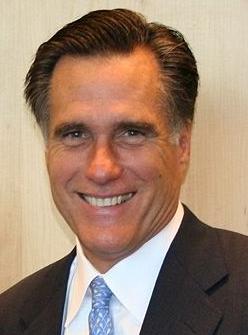
Segment 3 - What is your view of the level of federal regulation of the economy?
Romney: Says, "Regulation is essential," and, "Every free economy has good regulations," but also that regulation can become excessive and out of date, pointing to Dodd-Frank. "It (Dodd-Frank) designates a number of banks as too big to fail... This is the biggest kiss given to New York banks that I've ever seen!" Says he would repeal Dodd-Frank and replace it.
Obama: "I think this is a great example." Says reason for the crisis is reckless behavior overall, such as, "Loan officers giving loans and mortgages to people who couldn't afford them, and stamping investments as A1 when they're not." Also says big banks churned out products "that even the bankers themselves didn't understand," and weakened the entire system.
Says he has passed the toughest reforms on Wall Street since the 1930s, raising capital requirements, requiring a living will for accountability, and making sure any help is paid back with interest. Says Romney wants to repeal, but offers no details. Address camera directly, asks, "Does anyone think that the problem was too little regulation of Wall Street?", then says (paraphrased), "If you do, then G. Romney is your candidate."
Romney: Says Obama's statements are "just not the facts". Also says Dodd-Frank was not thought through properly, pointing to a specific example of a clause about mortgages. Says the clause puts big penalties on banks who give mortgages to unqualified people (which he supports), but failed to specify what made someone unqualified. Says the result is that banks are reluctant to give mortgages at all, and points to it as an example of regulations in Dodd-Frank that "weren't thought through properly".

Segment 4 - What are the differences between you two on healthcare? (Or whether to repeal Obamacare or not)
Romney: Wants repeal of Obamacare. Says cost of care is now prohibitive, will cost more than "traditional care". Also says Obamacare cuts $716 billion from Medicare and puts in place an unelected board. Says 3/4 of business owners now say they are less likely to hire. Also mentions that his plan is state by state: "The best course for health care is to do what we did in my state: craft a plan at the state level that fits the needs of the state."
Obama: Premiums were skyrocketing, health insurance was the single largest driving factor of our deficit, and "families worried about going bankrupt when they got sick." Before private insurance companies could refuse people with pre-existing conditions and could put "arbitrary caps" so when people actually needed the money, it wasn't there.
Says Obamacare "doesn't mean a government takeover" and doesn't allow lifetime limits, allows children up to 26 years old to stay on the family plan, and forces rebates if "insurance companies are spending more on administrative costs and profits than they are on actual care." Also, says if you don't have health insurance, you get to benefit from group rates. Notes irony that the model "has worked really well in MA", as now more people are covered there with no loss in jobs.
Romney: Says he liked MA because of: - The bipartisanship. Says Obama went to "push through a plan without a single Republican vote." - Didn't raise taxes. - Didn't cut Medicare (MA doesn't have Medicare). - No unelected board. - Didn't put people in position to lose current insurance.
Says Republicans had a bipartisan plan on the table that was "swept aside".
Obama: Says Obamacare was bipartisan, as it was a Republican idea. Also quipped, "And I agree that the Democratic legislators in Massachusetts might have given some advice to Republicans in Congress about how to cooperate, but the fact of the matter is, we used the same advisers, and they say it's the same plan." (!) (http://www.politifact.com/truth-o-meter/statements/2012/feb/16/rick-santorum/rombo-ad-rick-santorum-says-mitt-romney-adviser-eq/).
Says smart practices (ex. one test rather than many, preventive care, pay by performance) save money. Says the Obamacare board is a panel of healthcare experts whose goal is to identify and institutionalize the best practices. Also mentions that for the past two years, inflation has been lower than at any other time for the past 50 years.
Says Romney's replacement plan says nothing but that he'll leave it to the states. Obama criticizes Romney's fix of being able to buy insurance across state lines, saying that there is no evidence that that will help people with pre-existing conditions. Says by repealing Obamacare, "50 million" will lose healthcare coverage. (!) (http://www.politifact.com/truth-o-meter/statements/2012/oct/05/barack-obama/obama-says-50-million-lose-coverage-if-obamacare-r/).
Romney: 1.) Pre-existing conditions are covered under his plan. (!) (http://www.politifact.com/truth-o-meter/statements/2012/oct/05/barack-obama/obama-says-50-million-lose-coverage-if-obamacare-r/). 2.) The until 26 years old policy can be covered by the private insurance marketplace; doesn't require a government mandate.
Says Obamacare has an unelected board that decides what kinds of treatment you can have, and also quips, " In my opinion, the government is not effective in bringing down the cost of almost anything." Says competition and innovation by private sector will do better than "a board of 15 people telling us what kinds of treatments we should have."
Says federal mandates are the wrong way to go. "The private market and individual responsibility always work best."
Obama: Says, "This board that we're talking about can't make decisions about what treatments are given. That's explicitly prohibited in the law." Says Romney's plan only duplicates what's already in the law. Says MA, like Obamacare, only expanded private insurance (emphasis his), as all it did was to tell private companies they must accept everyone, but that they'll have more customers because of it anyway.
Also criticizes Romney for not providing details in how he will replace Obamacare, and repeats his criticisms of the lack of detail in his tax plan and Dodd-Frank.
Romney: Responds to criticism about lack of detail by saying a "my way or the highway approach" doesn't work well with Congress, and instead he will follow Reagan's example and lay out his principles: "Simplify the tax code, broaden the base." Repeats that he does have a plan that covers people with pre-existing conditions. (!)
Also responds to Obama's mention of MA by saying that "MA is a model for the nation, state by state." Says the federal government has no place in healthcare, which he thinks amounts to "whisking aside the 10th Amendment."
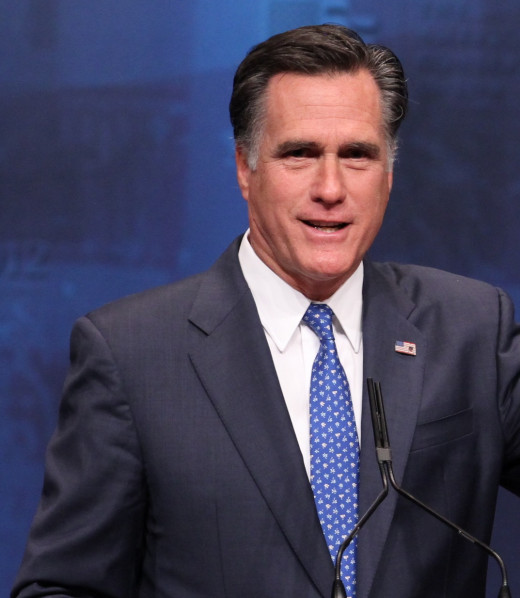
Segment 5 - Is there a fundamental difference between the two of you in viewing the mission of the federal government?
Obama: "Well, I definitely think there are differences." Says first duty is to protect American people, but also thinks "the government has the capacity, the federal government has the capacity to help open up opportunity and create ladders of opportunity." Says, "There are some things we do better together," and points to Lincoln, who helped fund the Transcontinental Railroad, the National Academy of Science, and land grant colleges. Says these "gateways of opportunity" don't restrict freedom; rather, they enhance it.
Then points to education, again mentions Race to the Top, which Obama says, "Wasn't a top-down approach, Governor. What we've said is to states, we'll give you more money if you initiate reforms. And as a consequence, you had 46 states around the country who have made a real difference." Criticizes Romney, saying, "Governor Romney doesn't think we need more teachers. I do."
Romney: First, defends his education record, saying that MA has great schools (top of the nation (!) (http://www.politifact.com/truth-o-meter/statements/2012/oct/05/mitt-romney/mitt-romney-said-massachusetts-schools-are-ranked-/) and great teachers. Points to Constitution and Declaration of Independence, saying "The role of government is to promote and protect the principles of those documents."
Says, "First, life and liberty. We have a responsibility to protect the lives and liberties of our people, and that means a military second to none. I do not believe in cutting our military. I believe in maintaining the strength of America's military. Second, one line says we are endowed by our Creator (emphasis his) with our rights. I believe we must maintain our commitment to religious tolerance and freedom in this country."
Says, "We care for those that have difficulties, those that are elderly and have problems and challenges, those that are disabled. We care for them," but that, "We also believe in maintaining for individuals the right to pursue their dreams and not to have the government substitute itself for the rights of free individuals." Says the "trickle-down" government approach is not working.
Lehrer then tells both to get specific, prompting education.

Does the federal government have a responsibility to improve the quality of public education in America?
Romney: Says the primary responsibility is at the state and local level. Says he agrees with some, though not all, of Race to the Top. Mentions that he plans to direct federal funds of IDEA or Title 1 to "follow the child and let the parent and the child decide where to send their student."
Obama: Says he thinks federal government has "significant role to play". Mentions that Race to the Top was bipartisan and, "They're (the reforms are) having an impact right now".
Lehrer: "Do you think you have a difference with your views - and those of Governor Romney on - about education and the federal government?" [[His words, not mine. Had to look them up on a transcript because I couldn't hear them.]]
Obama: "Budgets reflect choices." Says that if Romney wants to pass Paul Ryan's plan, he will have to cut things like education. Says that Ryan budget is not very detailed (quips, "Seems to be a trend."), but that by extrapolating how much money it will cost, it will cut the education budget by 20%. [[Would love a fact check, but haven't found one and don't have time to "extrapolate". Anyone have some free time? :D ]]
Defends record on education, mentioning his support for community colleges and his success in $60 billion wasted on the "middleman" of banks that now provide assistance for student loans.
Says he thinks Romney genuinely cares about education, but says comments like Romney's, "You should borrow money from your parents to go to college," show that he doesn't realize some don't have that option. Says making sure "they can walk through that door" is not only important for them, but for the long term growth of the economy.
Romney: "Mr. President, you're entitled as the president to your own airplane and to your own house, but not to your own facts. All right, I'm not going to cut education funding." Criticizes Obama "Budgets reflect choices" comment by pointing again to Obama's $90 billion in green energy. (!) (See previous)
Says, speaking generally about the role of government, the right course for the government is not to be an "economic player", but to make the private sector more efficient.
Back on education, proposes grading schools so that parents can see where they should send their children.
Lehrer: Quote from CNN transcript [I couldn't hear him]: "Excuse me (inaudible). Excuse me, sir. We've got -- we've got -- barely have three minutes left. I'm not going to grade the two of you and say your answers have been too long or I've done a poor job."
Obama: "You've done a great job."
[This was widely said to be the lie of the night. I'm not going to spend any time reviewing his performance, but feel free to take a look at these two reviews, one (by the Huffington Post) rather harsher than the other (by USA Today). Also, take a short break by watching the video to the above right. It's slightly cruel, but honestly, it's pretty funny.]
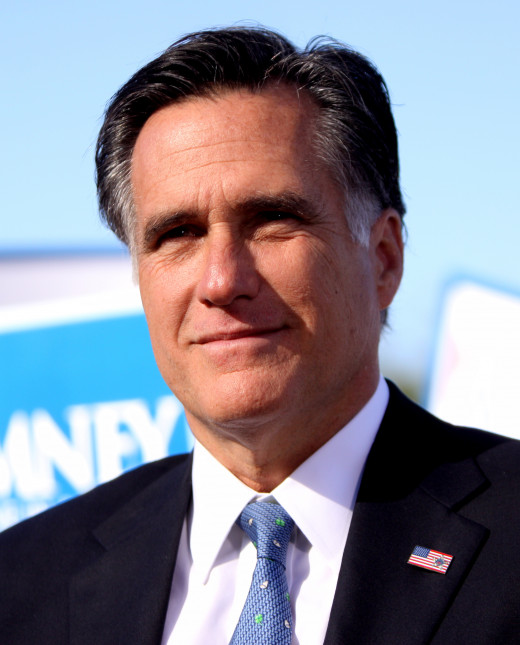
Segment 6 - How will you deal with the current partisan gridlock?
Romney: Says he was elected in a state where the vast majority were Democrats. Says if he is elected, the day after he will go sit down and talk with leaders in both parties. "We have to work on a collaborative basis, not because we're going to compromise our principle, but because there's common ground."
Mentions the deficit and the Middle East, says people are hurting. Also says, "Republicans and Democrats both love America. But we need to have leadership -- leadership in Washington that will actually bring people together and get the job done and could not care less if it's a Republican or a Democrat. I've done it before. I'll do it again."
Obama: Says Romney's promise to repeal Obamacare [Also worded as "on day 1"] "will not be very popular among Democrats as you're sitting down with them." Then says will take ideas from anyone, R or D, as long "they're advancing the cause of making middle-class families stronger and giving ladders of opportunity to the middle class."
Goes on to defend entire record, says that's how he: Cut taxes for middle class and small businesses, cut a trillion dollars of spending, signed 3 trade deals that improve exports, repealed "Don't ask, don't tell", ended war in Iraq and will wind down Afghanistan, and attacked Al-Qaeda and bin Laden.
Says being a leader is, "A, being able to describe exactly what it is that you intend to do, not just saying, 'I'll sit down,' but you have to have a plan." Also, mentions being able to say no "to folks both in your own party and in the other party," specifically mentioning "reining in the excesses of Wall Street" and healthcare.
Criticizes Romney, saying, "G. Romney, when it comes to his own party during the course of this campaign, has not displayed that willingness to say no to some of the more extreme parts of his party."
Closing statements
[Because closing statements are prepared beforehand, I'll just post a video below. They're not that long, and they offer a sense of how the candidate was actually speaking throughout the debate, which is something you might lose from just reading a summary.]
Obama: Well, Jim, I want to thank you, and I want to thank Governor Romney, because I think was a terrific debate, and I very much appreciate it. And I want to thank the University of Denver.
The video of the Obama's closing statement is below, and Romney's is below that. Enjoy!
Obama's First 2012 Presidential Debate Closing Statement
Romney's First 2012 Presidential Debate Closing Statment
Lehrer: Thank you, Governor.
Thank you, Mr. President.
The next debate will be the vice presidential event on Thursday, October 11th at Centre College in Danville, Kentucky. For now, from the University of Denver, I'm Jim Lehrer. Thank you, and good night.
Yep, thanks for tuning in. Feedback and comments are welcome and appreciated!



